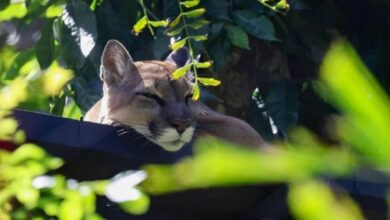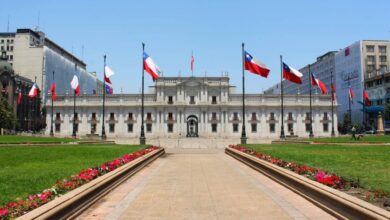This is the foundation that bets on agro-technology
Listen this article
Fundación Más por Tic told LatinAmerican Post how it hopes to become the largest digital farmer network in Colombia

The development of agriculture must go hand in hand with technological progress, and this is known to the four co-founders of the Más por Tic Foundation. Nathaly Sepúlveda, Eliana Camargo, Brayan Rodríguez and Giuseppe González established this non-profit organization intending to connect the field with the technological market so that farmers can progress alongside the developments that benefit them.
Leer en español: Esta es la fundación que le apuesta a la agro tecnología
In an exclusive interview with LatinAmerican Post, Sepúlveda, Camargo, and Rodríguez tell us how the Foundation was born, what has been the biggest challenge they have faced as social entrepreneurs, how they have overcome it and what their goals are. Finally, they give three tips to social entrepreneurs who want to start a project, so they do not falter in the attempt.
Who are the co-founders?
Más por Tic was born as a degree project by Eliana Camargo at Sergio Arboleda University. After testing a first pilot, the four entrepreneurs decided to establish the organization as a foundation. They are:
- Nathaly Sepúlveda: Designer with an emphasis on product and communication at the Universidad de Los Andes and a Master's degree in Entrepreneurship and Innovation at The University of Edinburgh.
- Eliana Camargo: Social Entrepreneur, Industrial Engineer from Sergio Arboleda University (Bogotá, Colombia) and Master in Public Administration from University College London – UCL (London, United Kingdom). Chevening Alumni 2016 – 2017.
- Brayan Rodríguez: Professional in finance and foreign trade at the Sergio Arboleda University: MBA at the Business School of Navarra.
- Giuseppe González: Electronic Engineer from the Sergio Arboleda University and Master in International Technology Management from the University of Warwick, United Kingdom.
How is the foundation born?
It was born in 2013, from a degree project at the Universidad Sergio Arboleda de Camargo, which sought to implement the use of technology in the field. The first time the methodology was applied was in Noruega, Silvania, Colombia. The project consisted of 5 sessions of digital literacy for farmers.
Subsequently, in 2014, the idea of establishing the foundation as a non-profit entity arises, and in 2015, the foundation was legalized before the Chamber of Commerce.
Currently, Más por Tic has three services:
- Culture Tic: "How do I get my team to adapt quickly to new technology? " The foundation offers training to understand and use technology on a day-to-day basis.
- Digital Strategy: "How do I take advantage of the technology I have around me?" Más por Tic offers companies advice on the inclusion of technology in their value chain to improve their processes.
- Digital innovation workshops: "How do I create new digital products? How do I solve my company's problems using ICT?" The organization trains human talent to enhance the creativity of workers and offer digital solutions.
Also read: How much does 1 GB of mobile data cost in Latin America?
What has been the biggest challenge they have faced as entrepreneurs?
Because they are social entrepreneurs, say Sepúlveda and Camargo, the most challenging thing was to identify a problem that did not necessarily have a way of being self-sustaining and fundable. The challenge is divided into two parts.
One is that the challenge is "outside" the members of the foundation. The co-founders "have the knowledge of management and appropriation of ICTs, but none of them live in an agricultural community all the time. The first thing is to reach the farming communities, who are the beneficiaries and in whom we identify the problem. The second is to pilot and find ways to finance our projects."
How have they managed to overcome these challenges?
The team has identified two ways to overcome these two obstacles:
- With the agricultural communities: the way to face and understand their needs is a matter of spending time with them. "When you're a stranger, it's difficult, and when you let a stranger into your house, it's obviously difficult. What we have done is spend time with them, even outside in social spaces. With the association of farmers in Noruega we sometimes go to the days of the celebration of the day of the child, it helps us to build trust with the community with the farmers' association", says Sepúlveda.
- Having a strong team: Camargo explains that it has helped them to be together as co-founders. "I think we have been able to move forward during these four years is the team although it is difficult to connect the foundation with a big business if they have a huge human capital that has remained united for four years and that they have momentum and projects to develop together."
How have they achieved success?
Nathaly Sepúlveda says that "the success of the projects is due to the work with the leaders of the communities, in both cases both have been women with high leadership abilities. The strategy, for this reason, is to focus on replicators who are people who will identify themselves as leaders in a community or region. Through the strengthening of these leaders, they are expected to replicate the knowledge."
In this regard, Rodriguez adds that "in these years we have clarified the products we want to sell to make the foundation sustainable."
You may be interested: 3 uses of facial recognition that demonstrate how technology revolutionized
These are two of the star projects of the foundation
- Farmers Association in Noruega: digital literacy work and empowerment of leaders were carried out in this community. 8 farmers were certified as digital entrepreneurs. Additionally, work was done to identify the strengths and weaknesses of the association and the community to strengthen the digital and business vision.
- Organic farming in Tenjo: the study of the value chain to identify where technology could influence and improve the process.
What has been the biggest obstacle in the literacy project and how did they overcome it?
Camargo and Sepúlveda affirm that scalability and understanding the needs of each group have been the most significant challenges when implementing their services. Each community has a different requirement for technology.
"In Silvania, for example, some people had never turned on a computer. While in Tenjo the leader of the association was on the other side, she used WhatsApp she had a computer, internet, Google Drive and everything was handled perfectly. She needed a more advanced level of technology use while the others needed to learn to use the basics, "says the designer.
Adaptation to each group is one of the biggest challenges, and they are working to confront it and to be able to scale the literacy processes according to the needs. As they have assumed is the differentiator of the Foundation, a test is applied that determines what level farmers are in and thus establishes what degree of literacy they need.
What are their short, medium and long-term goals?
- Short term: implementation of the strategy of replicators that will be done through a digital platform and a crowdfunding process to be able to impact 250 farmers. 150 farmers through crowdfunding and the other 100 through partnerships.
- Medium term: Launch Cultivo Red, a digital platform, which they hope will become the national network of farmers and the largest network in Colombia. They hope to have 5250 farmers enrolled in this platform by 2022. This platform would allow public and private companies to learn more about the agricultural market and expect to become the link between the field and technology. Additionally, the Foundation aims to increase and establish replicators in all regions to connect their communities with technology.
- Long term: consolidate as a reference in agricultural issues and become one of the actors that facilitate and strengthen the agro-technological ecosystem of Colombia.
3 tips for social entrepreneurs
- Sepúlveda says: "although sometimes it seems that time and money are being wasted in understanding the problem, it is not a loss because it is an investment."
- Camargo says: "do not start alone. The team is fundamental."
- Rodríguez advises: "patience and resilience in the search for solutions, even if you have to start from scratch."
LatinAmerican Post | Lina Marcela Peñaloza
Tranlated from "Esta es la fundación que le apuesta a la agro tecnología"





